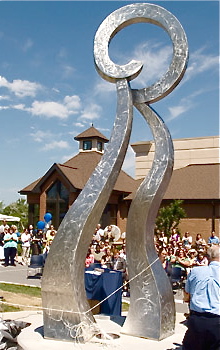When it comes to the federal budget, the numbers, programs and acronyms are stupefying -- and I mean literally.
Doctors in Washington, D.C. have been known to replace Ambien prescriptions with policy briefs on funding levels for DOD or HHS. Entire conversations between budget wonks transpire with nary an adjective or adverb to be found -- only acronyms, conjugations of the verb "to be" and the occasional noun. And there are even rumors that several prisoner rights organizations are looking to categorize C-Span broadcasts of budget negotiations as "cruel and unusual punishment."
The work of Heritage Christian Services in Rochester, N.Y., however, is the polar opposite of boring -- it's downright inspiring. Six families were looking for support for their children with developmental disabilities. When they couldn't find the services they needed, they started their own group home. Today, they run more than 60 group homes with more than 1,500 employees.
And more than 98 percent of their funding comes from the government.
Why is their work important? Historically, societies haven't done a very good job taking care of those with disabilities. While religious communities stepped in to care for the physically disabled, those with developmental disabilities often became the targets of cruelty from religious communities. Some were considered "cursed" or demon-possessed. (For a brief overview of the history of how those with disabilities have been treated you can read this appendix from the book Teaching for Diversity and Social Justice.)
More contemporary history had its own dark edges. The rise of eugenics led to forced sterilization of those deemed "unfit" by the state to bear children. Until the 1960s, 23 states had compulsory sterilization for any person they deemed "mentally retarded."
Our moral strength as a society comes from how we treat vulnerable populations. The rise of programs such as Medicaid and Head Start has allowed the independent living movement among those with disabilities to flourish  and groups such as Heritage Christian Services do their life-changing work
and groups such as Heritage Christian Services do their life-changing work
But here's the problem: Heritage Christian Services just saw their funding cut by the federal government and they are concerned that the worst of the cuts are yet to come. From what the staff members there have witnessed, the fight around funding for their program doesn't fall along partisan lines.
Rather, it is divided between those who know their work and see the benefits for those with disabilities, and those who don't.
We have a society that has made commitments to protect vulnerable people whether they can afford it or not. Groups such as Heritage Christian Services are showing how that can be done in a cost effective way that respects the image of God in each person.
It is now a question of political will for Congress, whether or not it will live up to those commitments.
Outside the Pieters Family Life Center, named after one of the founding families of the Heritage Christian Services, stands a statue called "Stronger Together." As we toured the facilities we were told that the statue represents two figures holding each other up. But, as you look at the statue it is impossible to tell who is doing the holding and who is being held.
The world might say that the strong should leave the weak behind. It is not "efficient" to live and be in relationship with those who are not like us.
Yet, our faith teaches that we are all connected.
We are strong because we hold one another up.
 Tim King is Communications Director for Sojourners. Follow Tim on Twitter @TMKing.
Tim King is Communications Director for Sojourners. Follow Tim on Twitter @TMKing.
Got something to say about what you're reading? We value your feedback!